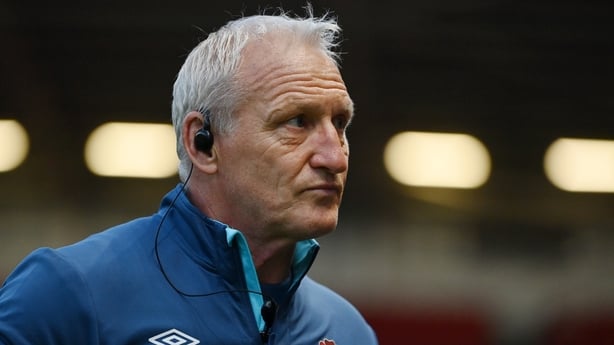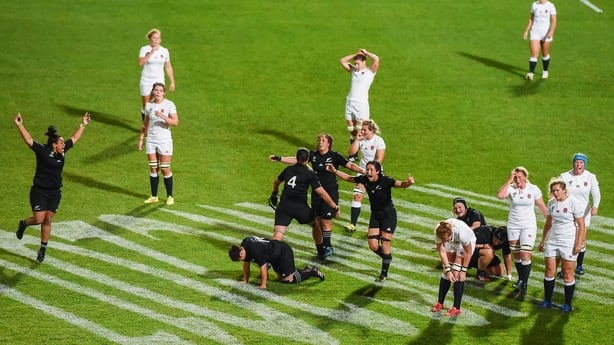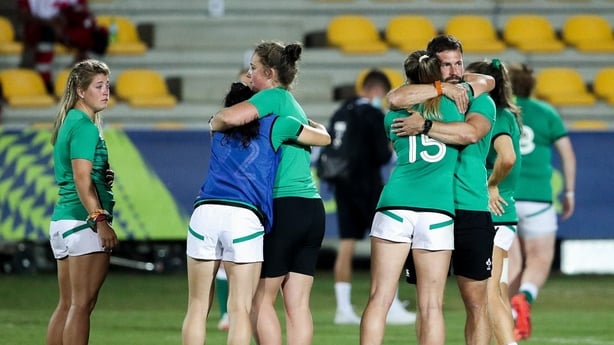While most teams at the women's Rugby World Cup will arrive with various levels of hope, England will fully expect to cruise to the final and another probable showdown with New Zealand, the only side who look capable of beating them.
The teams have contested four of the last five finals with New Zealand winning all four meetings but England, largely through turning professional in 2019, look to have opened a considerable gap between them and the rest, with even the Black Ferns struggling to hang on to their coattails in the last 18 months.
The three years the England squad have been able to work together, with all the nutritional and medical support that comes with professionalism, has made them unrecognisable from the side beaten 41-32 by New Zealand in the 2017 final in Belfast.
Other nations have followed suit, with various levels of contract, commitment and support, but they are still all playing catch-up.
England's 73-7 thrashing of Wales in their final warm-up game last month stretched their winning run to a record 25, which included two thumping wins over New Zealand last year.
England face France, South Africa and Fiji in the pool stage, and are heavy favourites to reclaim their title, having lost in the final five years ago. The hosts New Zealand appear to be best of the rest, while France will fancy their chances of making a run through the tournament, even if the title looks out of reach.
After naming his tournament squad, England coach Simon Middleton recognised the pressure facing his team:
"We've got to win it," he said, bluntly.
"This is the best prepared squad with the best strength in depth we've ever had, but that doesn't mean we will win it.
"The one thing you can't guarantee is that you will win it because it doesn't work like that."

Middleton (above) was an assistant coach when England beat Canada to win the World Cup in 2014 and six of the current squad were also involved in that success, including captain Sarah Hunter as she seeks to add to her 135 caps.
One notable absentee is Natasha "Mo" Hunt, the starting scrum-half in the last two finals, with Leanne Infante, Lucy Packer and Claudia MacDonald chosen to battle for the shirt.
"The decision came down to the fact that we have a very specific way of playing in that we build our game around our 10 and our 12," said Middleton.
"Our nine's role is very simple - get to the breakdown, get the ball into the 10's hands quickly, go to the next one and keep repeating it.
"Mo is a very instinctive player - she wants to run, kick and pass. She wants to be at the centre of the gameplan and really influential within."
That approach, which demands great fitness and really stretches less conditioned opponents physically, has also developed on the back of three years of professionalism and England know that even if they are not firing on all cylinders they should still be able to eventually wear down anyone.

Meanwhile, the Black Ferns were in a crisis earlier this year after thrashings in four Tests against England and France in late 2021, falling behind their rivals during two years of New Zealand's Covid-19 isolation.
By far the most successful team in the history of women's rugby, New Zealand were also without a coach after Glenn Moore resigned in the wake of a review into team culture, which he said was sparked by "misleading allegations".
Enter, in April, Wayne "The Professor" Smith as director of rugby.
The brains behind two All Blacks World Cup triumphs, Smith brought his former boss Graham Henry on board as a consultant and set about building a team that could win the tournament on home soil.
Smith and Henry have the sort of rugby pedigrees that demand respect and their prescription for the Black Ferns in the face of the powerful English and French threats was simple - a skills-based game played at high tempo.
Out went the incumbent captain and a handful of the stalwarts who had helped New Zealand to the most recent of their five World Cup triumphs in 2017.
The net was cast far and wide for fresh talent able to play at pace and the final piece of the jigsaw was added with the addition of Portia Woodman, Sarah Hirini and Stacey Fluhler from New Zealand's Olympic champion Sevens team.
The results on the park this year have been more than encouraging - six wins from six tests against Australia, the United States, Canada and Japan with more than 50 points put on the scoreboard in half of them.

The last match, a 95-12 romp over Japan, featured seven tries from Woodman, long the most lethal finisher in the women's game.
Whether the transformation will be enough to secure a sixth World Cup, however, will probably not be known until the Black Ferns meet England or France.
Before that, Smith and his assistants Wesley Clarke and Whitney Hansen should have three relatively comfortable Pool A games to figure out their best combinations.
They open their campaign on Saturday against neighbours Australia, who they have beaten three times this year and never lost to, before facing Wales and Scotland in Pool A.
If the tournament goes to plan for the leading teams, passage should be relatively straightforward into the semi-finals, where the moment of truth for the Smith project will finally arrive.
"It's not a secret that I didn't really seek the job," Smith said in August. "But sometimes you slide down a hill and land on a pot of gold, and that's what I feel like."
The remaining pool - Pool B - sees Canada, USA, Japan and Italy, the latter of whom qualified at the expense of Ireland 12 months ago at the infamous tournament in Parma.
In a revamp from the 2017 World Cup hosted in Ireland, the top two in each pool will advance to the quarter-finals, while two of the three third-place teams join them in the last eight, with the semi-finals and finals to be played at Eden Park on the 5 November and 12 November respectively.
Additional reporting: Reuters

